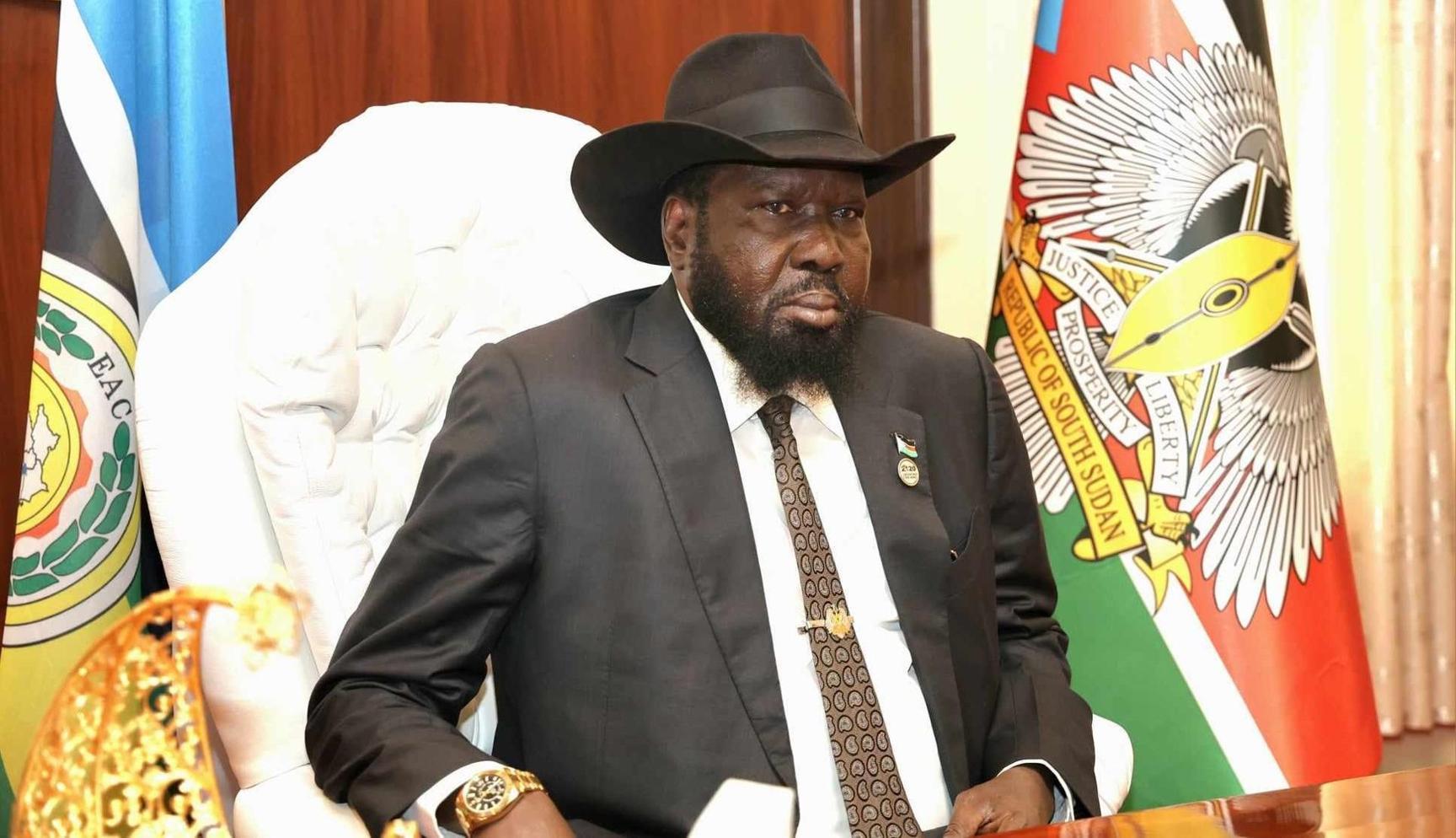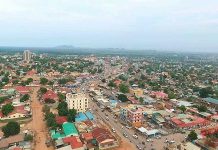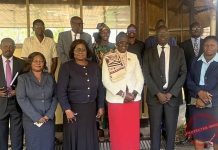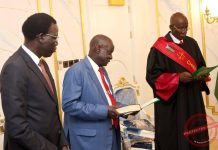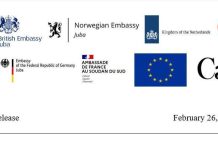Jenifer James
Africa-Press – South-Sudan. President Salva Kiir is poised for a delicate in decision making after he received the controversial National Security Amendment Act for assent yesterday amid growing concerns over some of its clauses deemed draconian.
The Office of the President noted in a statement Friday that the Speaker of the National Assembly, Jemma Nunu Kumba, handed over the bill with all the controversial sections to the president, despite the deafening calls from civil society and international community that the Head of State should reject it.
The bills that were submitted to the President on Friday include the National Security Amendment Bill, the Road Finance Agreement with Ethiopia Bill, the Ratification of the Treaty on Trade with China, and the Agreement on the Nile Basin Cooperative Framework.
According to the Office of the President, while the Parliament has already passed the bills, the President is expected to meet with the Minister of Justice and Constitutional Affairs and his legal team to further study the bills before signing them into law.
Although Parliament had the opportunity to remove the controversial Sections 54 and 55 from the NSS bill following submissions by civil society organizations, the bill that sailed in Parliament on July 3, 2024, with 274 MPs voting for it and 114 MPs opposing it, risks undermining human rights and strengthening the National Security Service’s abusive powers. Under it, the NSS would retain the power to arrest people, with or without an arrest warrant.
Last week, the Deputy Chairperson of the Sudan People’s Liberation Movement-in-Opposition (SPLM-IO), Nathaniel Oyet, called on President Salva Kiir to reject the National Security Service (NSS) Bill, arguing it could encourage human rights violations. He was speaking during the press conference over the weekend.
“We call upon His Excellency, the President of the Republic of South Sudan, to uphold the decision of the principals, the resolution of the Council of Ministers, and the legal advice of the Ministers of Justice and Constitutional Affairs on the deletion of Sections 54 and 55 of the Act, and not to assent to the controversial National Security Service Bill,” Oyet stated.
On Thursday, Amnesty International urged President Kiir to send the National Security Service Act 2014 (Amendment) Bill 2024 back to parliament for review and significant amendment.
According to Amnesty International, President Kiir should ensure that the bill conforms to the Constitution and international human rights standards by only granting the NSS the classical intelligence roles of information gathering, analysis, and advice to relevant authorities.
On March 3 last year, the Minister of Cabinet Affairs, Martin Elia Lomuro, stated that the principals had agreed that sections 54 and 55 would be deleted from the National Security Act 2014.
“You will recall that the council of ministers referred the divergent views on sections 54 (arrest without warrant) and 55 (arrest with warrant) to the principle to solve. I now write to confirm that the principals have agreed that the two sections 54 and 55 be deleted from the National Security Act 2014,” part of the document stated.
However, the backers of the bill, such as the former spokesperson of the National Assembly John Agany, argue that the powers granted to the NSS to arrest without a warrant are constitutional, and would only be abused by rogue officers who disregard the law.
“In these particular laws, namely articles, 54, 55, and 57, there is nothing wrong with them. Unless practitioners who are believed to be national Security Services apply them wrongly. That will be absolutely an administrative issue within the National Security Services,” Agany said.
“There is nothing wrong with this national security service law. Unless our people want to stay in a country of lawlessness because there are lawless individuals in every country in the world,” he said, adding that it was that context in which the lawmakers brought that law to life during the voting sessions.
Source: The City Review South Sudan
For More News And Analysis About South-Sudan Follow Africa-Press

